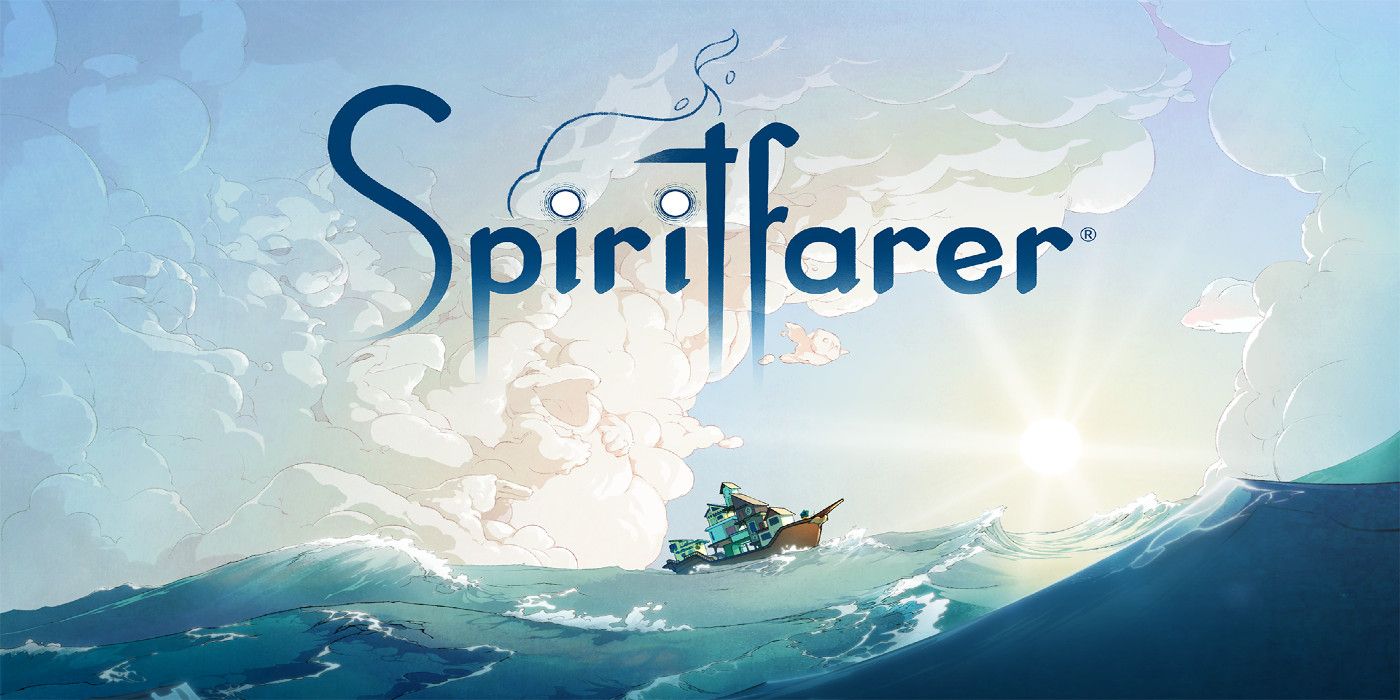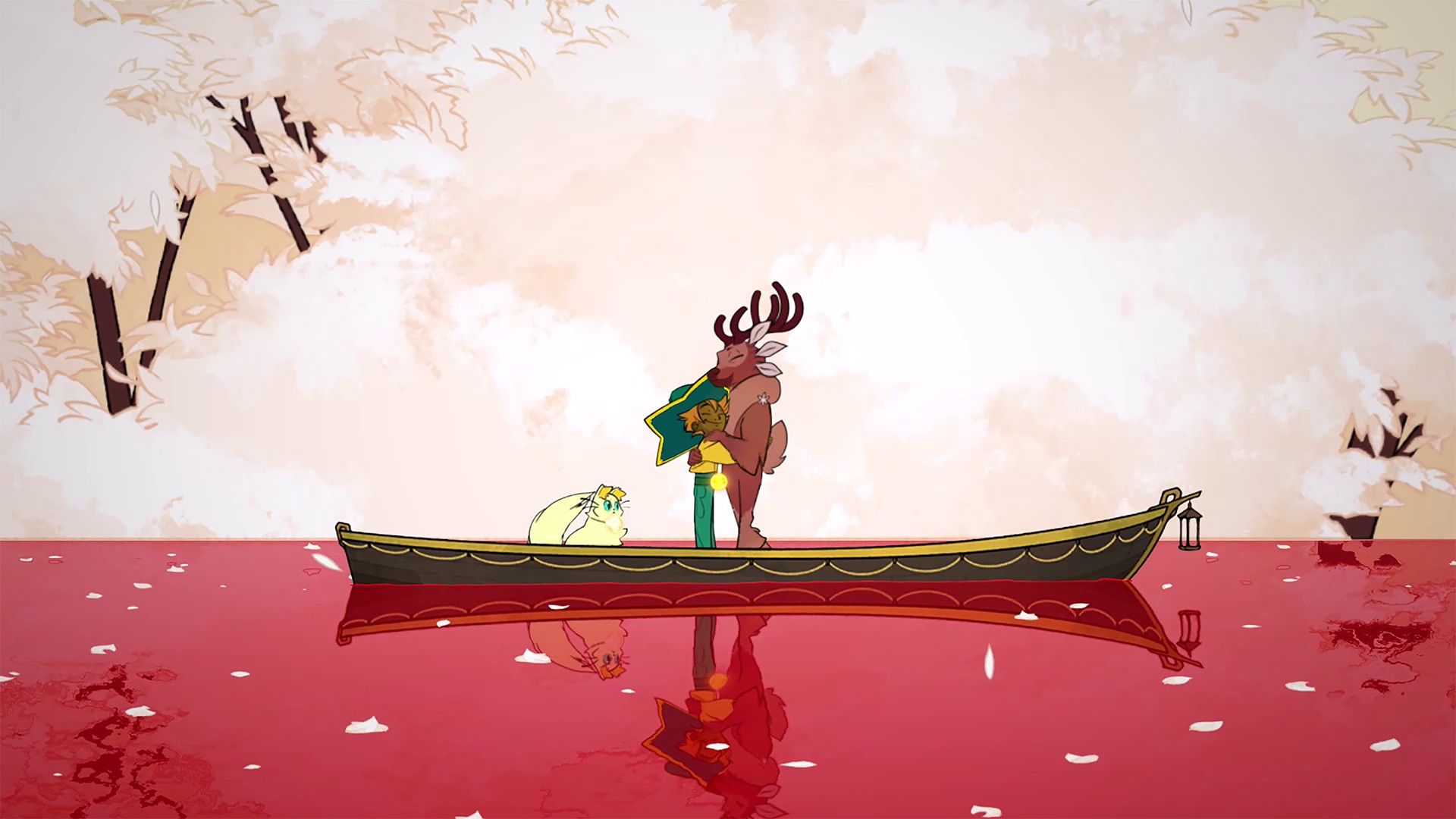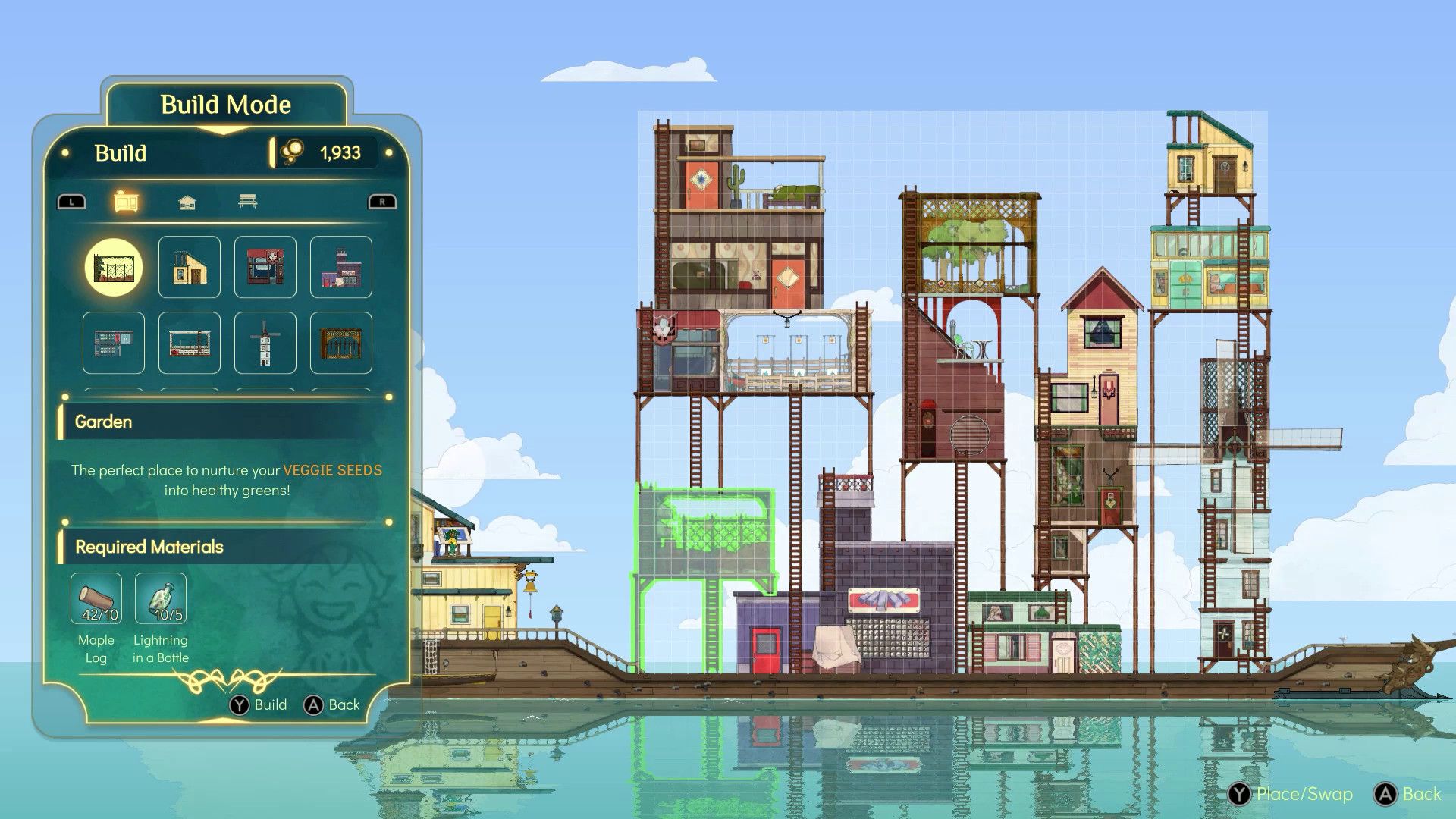Spiritfarer is not necessarily the next game that players expected to see from developer Thunder Lotus. The studio's two previous offerings were Jotun and Sundered, both of which were combat-heavy action games with dark narrative themes and settings. Spiritfarer stands in stark contrast to those past works in almost every way. This incredibly comfy and mechanically simplified management sim asks the player to use empathy above all else, prioritizing character development instead of the typical long-term micromanagement of the genre. It's a memorable, beautiful game and an outstanding example of doing more with less.
Players assume the role of a young girl named Stella, who suddenly finds herself floating on the oceanic waters of the spirit world. Charon, boatman to the deceased, informs her that his time is coming to an end and that she will be the one to take his place - to become the next Spiritfarer. He charges her with finding the souls of the dead, taking care of their needs, and ultimately ferrying them through the Everdoor and into the afterlife. With that, he bequeaths his boat to Stella and passes through the Everdoor himself. Stella sets out on her task with boundless positivity, picking up spirits from various islands while housing them, feeding them and learning more about their lives.
The intro is already an intriguing and charming twist on Stygian myth, and the game's characters and narrative only get better from there. Each person's soul is represented by a unique spirit animal, and each one has their own particular tastes, attitude and aesthetic. One could make obvious comparisons to Animal Crossing here, but that wouldn't do justice to Spiritfarer's vastly more mature and intimate themes. Characters like Gwen the doe conceal a sorrowful family history beneath finely-honed sarcasm and self-deprecation, while others like Uncle Atul the frog try to cope with death through cheery jokes and boisterous hobbies. The game's writing is full of good humor and profound moments, subtly but deftly communicating the vibrancy of life - even after death.
The writing isn't the only vibrant aspect of Spiritfarer, either. The smooth, sumptuous animation makes every character pop with personality, and the hand-drawn environments combine with rich lighting to create a truly beautiful game. The different regions of the ocean also have refreshing visual variety between their islands, and the lifestyles on those islands link back to the game's other themes. Music also plays a powerful role: it's impressive how such simple orchestral pieces (and retreads of the main theme) enhance the experience and stick in your mind long after turning off the game.
The way that Spiritfarer really differentiates itself from other management sims is in both its speed and pacing. Rather than walking slowly over a single plane (as in so many other games like Stardew Valley), the platformer-style movement of Spiritfarer is joyful in itself. Jumping, gliding, and zip-lining around Stella's boat and the rest of the world keeps the player much more active and engaged. The game also streamlines the usual grind for resources and materials by simply reducing the number of types, and spacing out their availability over Stella's voyage. This makes every new item feel significant, with each one opening up a wide range of construction options and upgrades. Overall, there are only a few negligible issues, like the occasional bug and the fact that there's no easy way to check the ship's map and crafting requirements at any time or place.
In the end, Spiritfarer is a wonderful take on the management sim. It creates a profoundly fulfilling loop by rewarding character interaction far more than micromanagement. The stellar production values and writing balance the game's realistic, death-positive message with abundant empathy. Thunder Lotus has really hit the nail on the head with Spiritfarer, achieving its artistic goal with simplicity, style and remarkably few flaws.
Spiritfarer is available on Nintendo Switch, PS4, Xbox One, PC, and Stadia. A Steam code was provided to Screen Rant for the purposes of this review.



